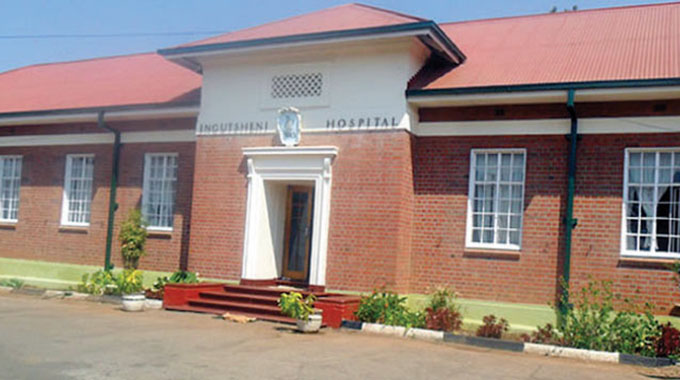
The Sunday News

Robin Muchetu, Senior Reporter
THE Government has set in motion plans to convert some Vocational Training Centres (VTCs) into drug rehabilitation centres, as it moves to de-congest existing facilities while ensuring that inmates acquire life skills that will keep them busy and out of drugs.
Facilities such as Ingutsheni and Ngomahuru Psychiatric hospitals are overwhelmed with drug and substance abuse inmates.
The development was announced by Health and Child Care Deputy Minister. Sleiman Kwidini during a tour of Bulawayo hospitals, recently.
He said the move was aimed at ensuring that drug users recover while also learning a life skill that would enable them to be economically active after being discharged.
It comes after it has been noted that many drug abusers relapse as they do not have the skills to help them generate income for self-sustenance.
“As a country, we are now at an advanced stage to make sure that Vocational Training Centres (VTC) are turned into rehabilitation centres, such that the recovering patients from Ingutsheni, Ngomahuru and other facilities are taken to VTCs, so that our burden from these treatment centres is lessened,” he said.
Deputy Minister, Kwidini said the two psychiatric hospitals were serving as rehabilitation centres but were mostly supposed to be curative facilities.
“We have adopted a holistic approach to the fight against drug and substance abuse, it’s a multi-sectoral one that involves the Minister of Youth Development and Vocational Training, Tino Machakaire and the chairperson of the Drug and Substance Abuse Steering Committee, the Minister of Defence Oppah Muchinguri is involved,” said Deputy Minister Kwidini.
He, however, did not say which VTCs were going to be converted, choosing to say a selected few where the burden was heavy.
“It is not a nationwide thing for now, but we are converting some VTCs such that those who are abusing drugs are rehabilitated there while being empowered through life skills. Some of these people are taking drugs because they say they are not employed and have nothing productive to do. So, if they are to be taken to these places (VTCs), after they are treated they will have something to do. The VTCs remain operating, but we will only convert a certain portion of the institutions chosen to rehabilitate the inmates,” he said.
Zimbabwe is battling a drug and substance abuse problem, with one major challenge being the shortage of public rehabilitation facilities.
Deputy Minister Kwidini said those who recover from rehabilitation should be able to carry out various skills they will attain at the VTCs as a form of recovery and then fend for themselves after being discharged.
The two psychiatric hospitals in Zimbabwe were not designed to be drug rehabilitation centres and traditionally house patients with mental disorders, but have become the only refuge for drug addicts who cannot afford private rehabilitation.
Drug abusers are admitted to these facilities because they exhibit drug-induced psychosis, which requires that they are taken to an institution where they do not have access to dangerous drugs and alcohol.
Private drug rehabilitation centres around the country cost between US$800 and US$3 000, which is out of reach for many.
During the tour, Ingutsheni Hospital administration said they have been facing challenges with anti-psychotic drugs for their patients with mental health issues.
“The scenario here at Ingutsheni Psychiatric Hospital is just the same as what we have seen at UBH, but the only difference is that there is a low supply of anti-psychotic drugs.
“But, since the Government has allowed the institution to purchase the drugs from private partners, we are hoping to see an improved supply of anti-psychotic drugs, which are needed at this institution,” said Deputy Minister Kwidini.
He had no kind words for the management at UBH who were accused of running a drug cartel, where they have not been ordering drugs from Natpharm while some drugs have allegedly been stolen.
He thanked Dr Nemache Mawere the Chief Medical Officer (CMO) for Ingutsheni, for being innovative and keeping the institution afloat with agricultural projects.
“There are some saboteurs around him who are throwing spanners in his way. We have seen that they are growing vegetables and maize to feed the patients. For now, they have about 3 000 chickens, which they are keeping and they are pushing 1 000 every two weeks.
“They are getting about US$1 500 profit, which is a lot of money, which can add in the procurement of drugs. I think they are in a good direction,” said Deputy Minister Kwidini adding that the Government would assist the hospital with boreholes to increase production. —@NyembeziMu



